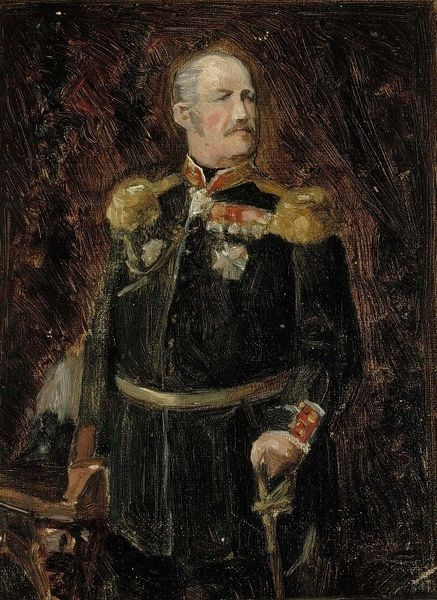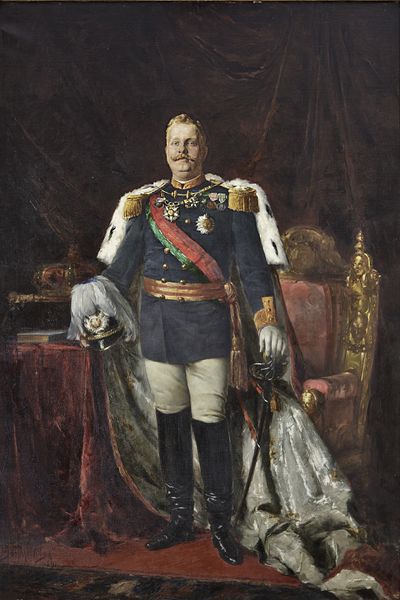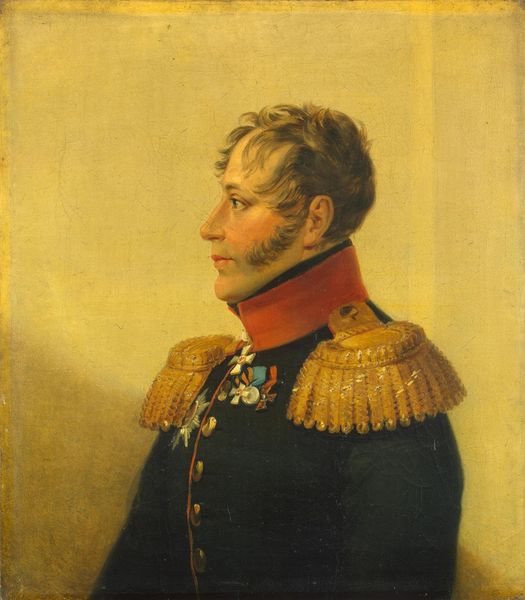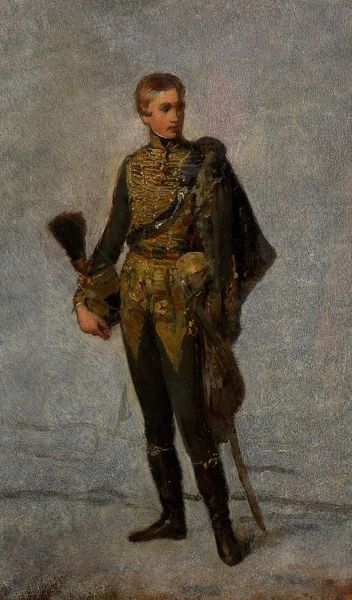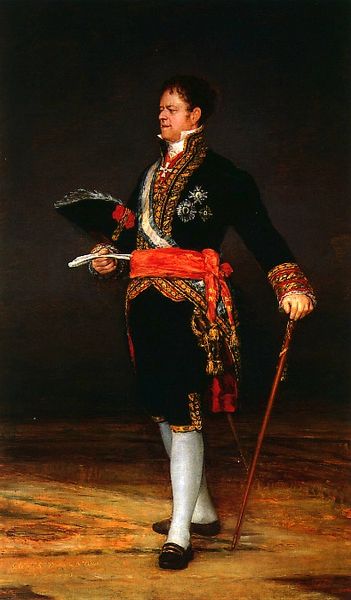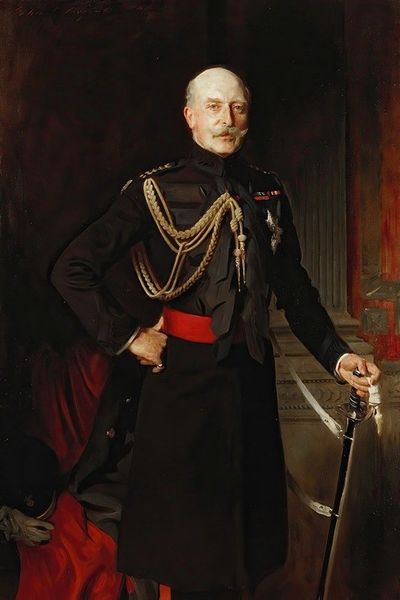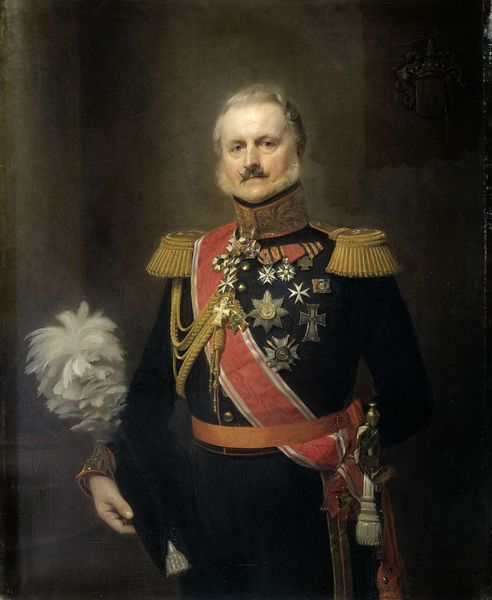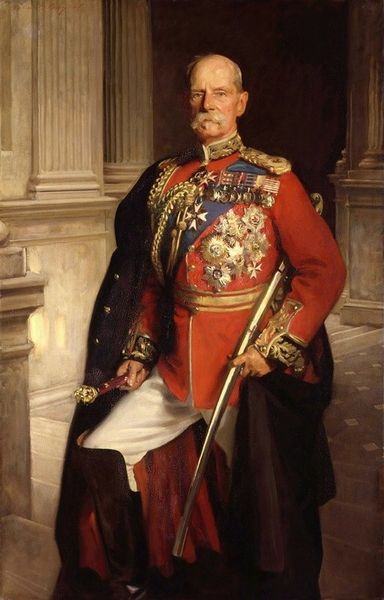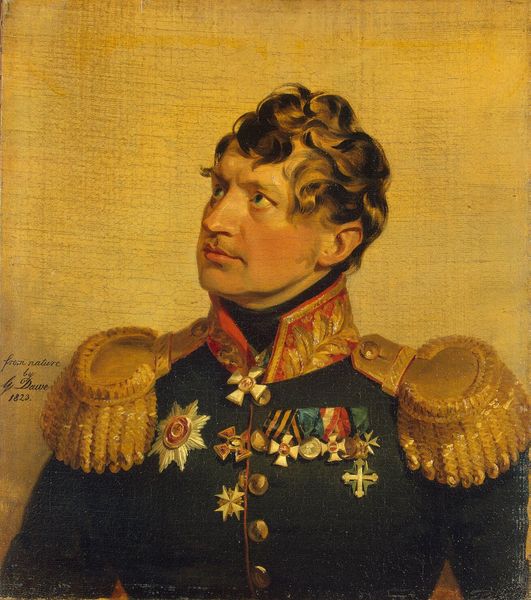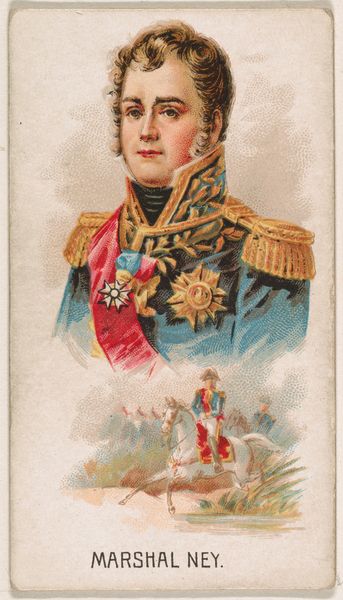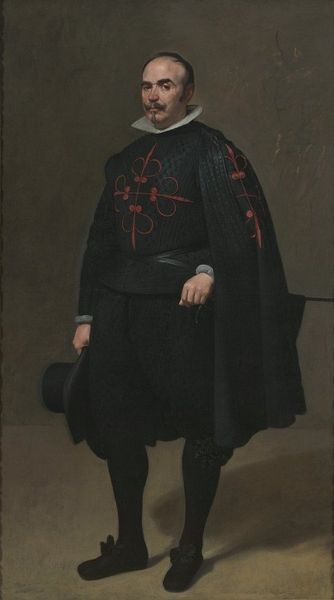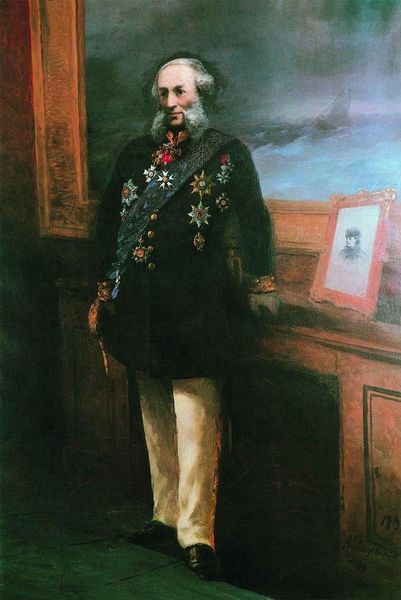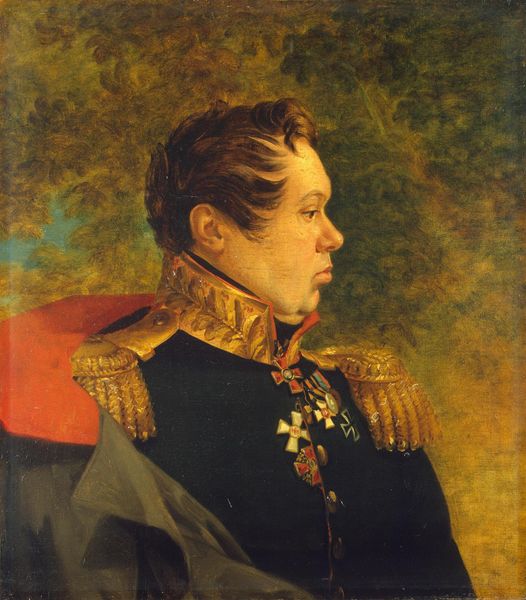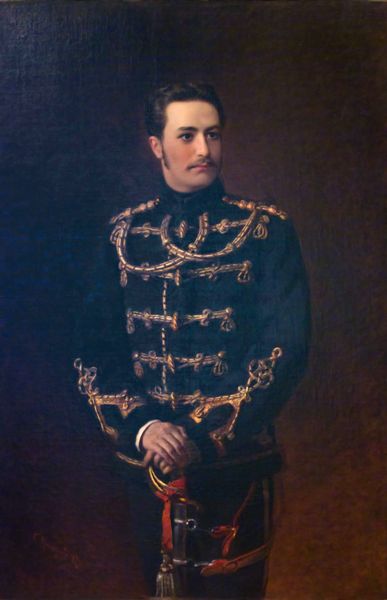
painting, oil-paint
#
portrait
#
figurative
#
painting
#
impressionism
#
oil-paint
#
oil painting
#
genre-painting
#
academic-art
#
realism
Copyright: Public Domain: Artvee
Julius Leblanc Stewart painted this portrait, likely in the 1880s, using oil on canvas. It captures a man, possibly Mr. Filleul-Brohy, in elaborate military attire, reflecting a fascination with status and identity within French society at the time. The painting invites us to consider the cultural significance of military portraiture in late 19th-century France. Stewart, an American expatriate, positions his sitter against a dark background, emphasizing the ornate helmet, polished breastplate, and the glint of the sword. This romanticized depiction of military regalia, reminiscent of an earlier era, reveals a longing for national pride amidst political instability following the Franco-Prussian War. It also raises questions about the role of art in constructing and reinforcing social hierarchies. To fully understand this work, we might consult military archives, fashion history, and social registers. These resources can reveal the symbolic meanings embedded in the sitter's clothing, gestures, and pose, and will offer a window onto the complex interplay of art, power, and identity in the Gilded Age.
Comments
No comments
Be the first to comment and join the conversation on the ultimate creative platform.
